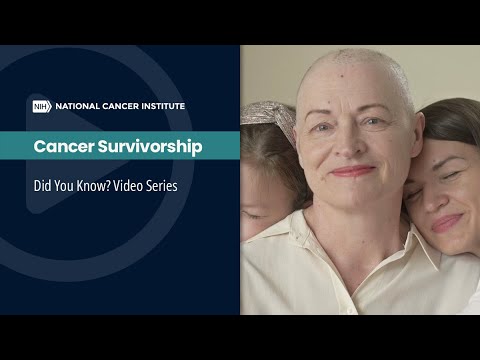Cancer Survivorship
A person is considered a cancer survivor from the time of diagnosis through the balance of life. There are many types of survivors, including those living with cancer and those free of cancer. What being a survivor means to you may change over time, and some people might prefer another term entirely to describe themselves.
To learn about NCI survivorship research, see our Office of Cancer Survivorship page.

Cancer Survivorship | Did You Know?
An individual is considered a cancer survivor from the time of diagnosis through the rest of life. Learn why the number of cancer survivors is increasing and more.
Choose an issue to learn more
-
Life After Cancer Treatment
Learn how to adjust to physical and emotional changes after cancer treatment, and coping with the fear of recurrence.
-
Follow-Up Medical Care for Cancer Survivors
Information about your follow-up care plan, getting a wellness plan, and guidelines for a healthy lifestyle.
-
Late Effects of Cancer Treatment
Cancer treatment can cause late effects that may not show up for months or years after treatment.
-
Family Issues
Learn ways to cope with common family problems and issues that often occur after treatment.
-
Coping with Advanced Cancer Long Term
People with advanced cancer are living longer due to new cancer treatments.
-
Care for Childhood Cancer Survivors
Learn about follow-up care for your child after they finish their cancer treatment.
-
Questions to Ask Your Doctor When You Have Finished Treatment
Suggested questions for cancer patients to ask their doctors after treatment is finished and they are planning for follow-up care and next steps.